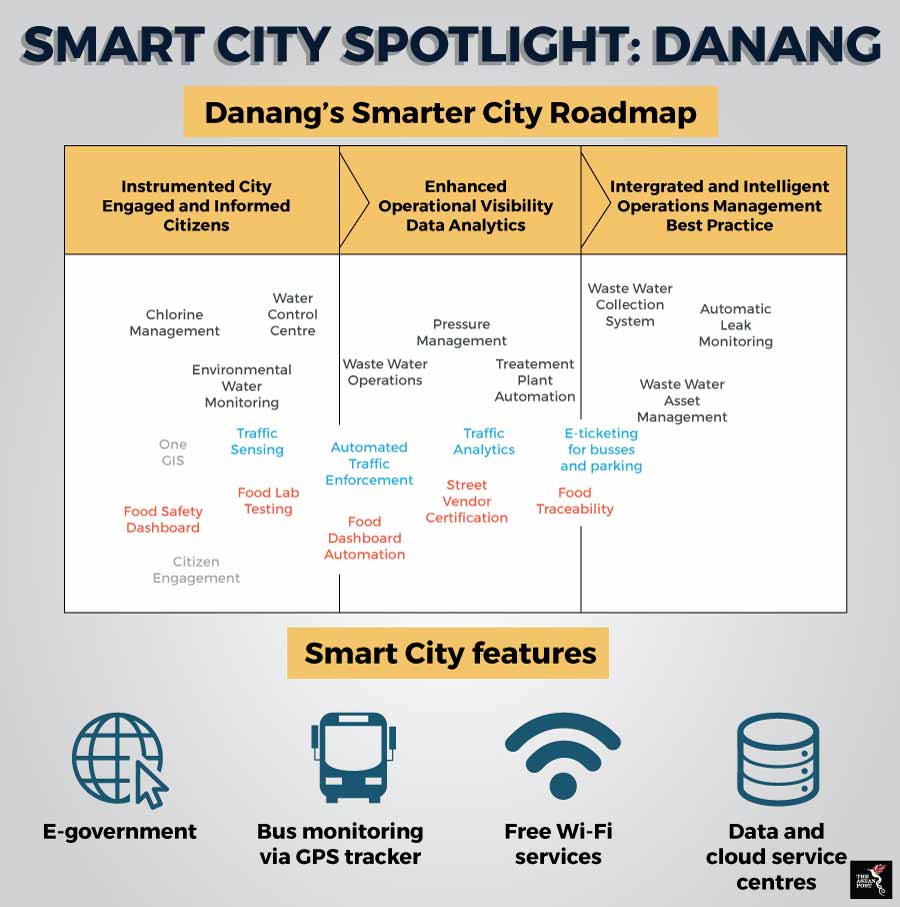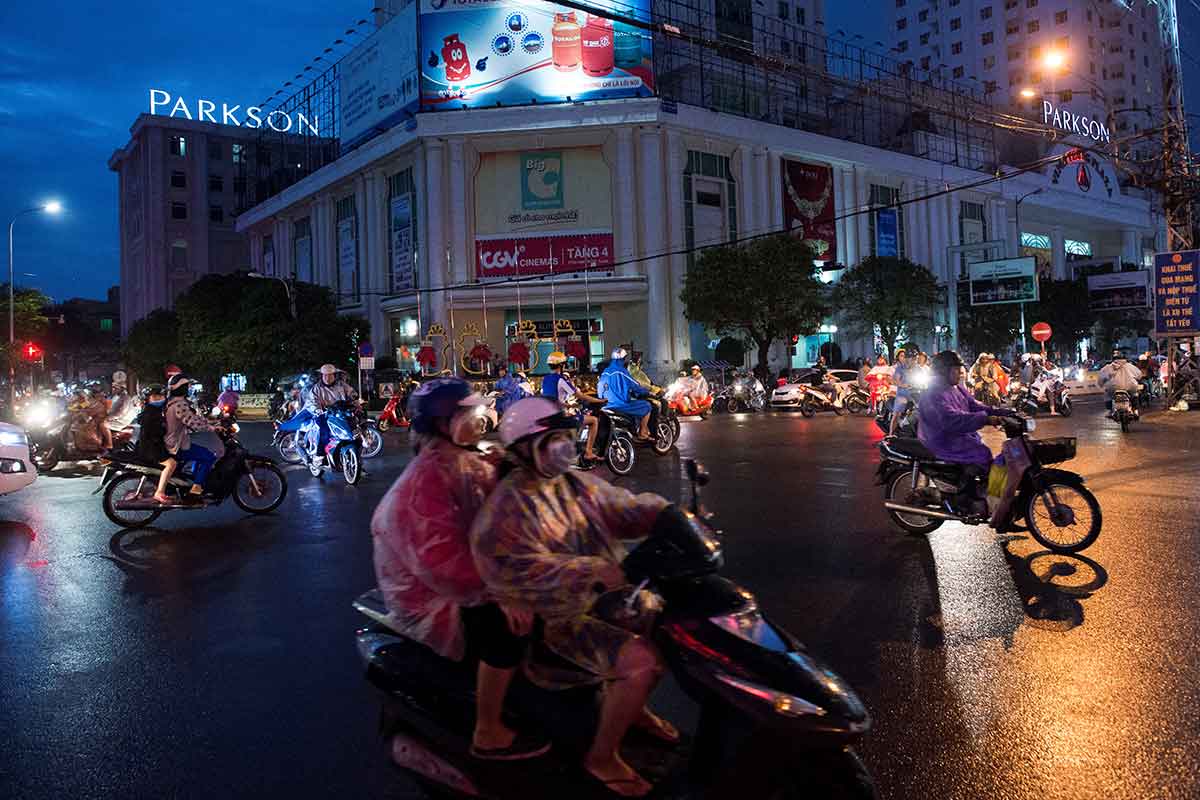The coastal city of Danang in Vietnam, is famed for its white sandy beaches and idyllic resorts and is Vietnam’s fifth largest city. Home to more than a million residents, the city is rapidly urbanising and its population is set to more than double to 2.5 million by 2030.
Danang joins 25 other pilot cities from member states of the Association of Southeast Asian Nations (ASEAN) as part of the ASEAN Smart Cities Network (ASCN). Set to be officially launched in November 2018 during the 33rd ASEAN Summit in Singapore, the ASCN envisions a collaborative platform for cities in the network to work towards a common goal of smart and sustainable development.
In 2017, the city hosted 6.6 million visitors, up 19 percent from the previous year and 4.8 percent higher than its annual target. Of that number, 65 percent or 4.3 million were domestic tourists while the remainder were foreign tourists mostly from neighbouring Lao PDR and Thailand.
According to a survey conducted by the Economist Intelligence Unit (EIU), 84 percent of residents in Danang consider their city “smart” citing improvements made to the environment as a main reason. Over the years, the city has made remarkable strides in sustainable urban development while incorporating elements of information technology (IT).
In 2014, Danang debuted the country’s first ever e-government platform. The system hosts 1,196 online public services and 498 other services covering the issuance of certificates for land use, management of public infrastructure like roads, water quality and drainage as well as the issuance of driving licenses.
Another application, Danabus recently launched by the municipal government provides ease of access for commuters to monitor local bus routes from their smartphones. This helps improve use of public transportation, subsequently reducing traffic congestion especially during rush hour.
Smart city development
To help further its ambition to become a premier smart city, the local government there has also inked several agreements with private entities and agencies.
Recently, one such memorandum of understanding (MoU) was signed between the city and state-owned Vietnam Posts and Telecommunications (VNPT) Group. The two-year agreement will help the development of IT applications in the fields of natural resources and environment, e-government, tourism, traffic, agriculture and public security. The collaboration represents an initial step towards the creation of a green and smart city by 2025.

Source: Various
Besides that, the city has also been working with Japan and Canada to promote trade and investment in Danang. As of June, this year, 160 Japanese firms operate in the city, including 65 IT companies like Asian Tech, Mabuchi Motor and Nippon Seiki.
Canadian investors have also expressed interest to support development in high-tech zones which would aid Danang’s overall push towards becoming more technologically integrated. Chairman of the Municipal People's Committee Tran Van Mien said in an investor event in Ottawa this year that Danang’s development aspirations would greatly complement the strengths of Canadian businesses and investors.
Earlier in April, Vietnam’s leading technology corporation, FPT announced plans to pump US$658,000 into pilot projects focussing on agriculture, medicine, energy and traffic as it looks to turn Danang into a smart city in two years. FPT will help alleviate traffic jams via real-time monitoring of roads and traffic signals management. Besides that, it will also introduce an electronic patient registry for hospitals as well as a crop management tool for farmers.
Technology will also be harnessed when responding to natural disasters like floods and tsunamis. Because it lies on Vietnam’s west coast, facing the South China Sea, Danang is especially susceptible to natural disasters. In 2006, Typhoon Xangsane caused 26 deaths, massive flooding and infrastructure damage.
Having to consistently play second fiddle to other major cities in Vietnam like Hanoi and Ho Chi Minh City, Danang is fast coming out of their shadow thanks to a rich natural environment, relatively good educational and living infrastructure. Its smart city ambitions are not to be downplayed as it seems clear that the city doesn’t suffer from a lack of effort in seeing through its aspirations for a smarter, greener and more sustainable future.
Related articles:
